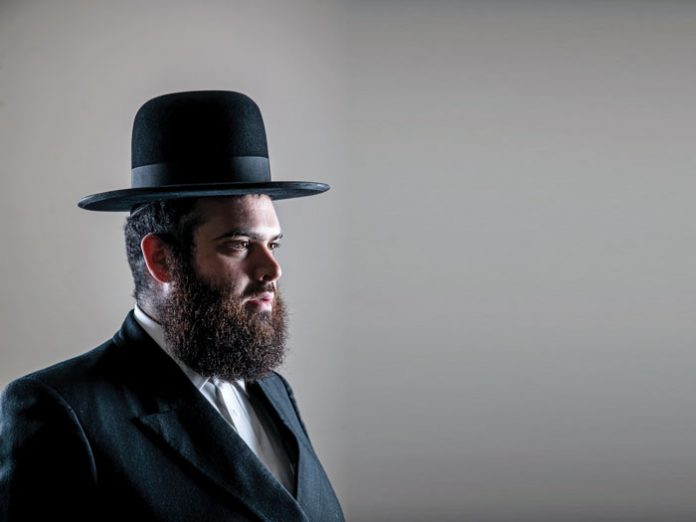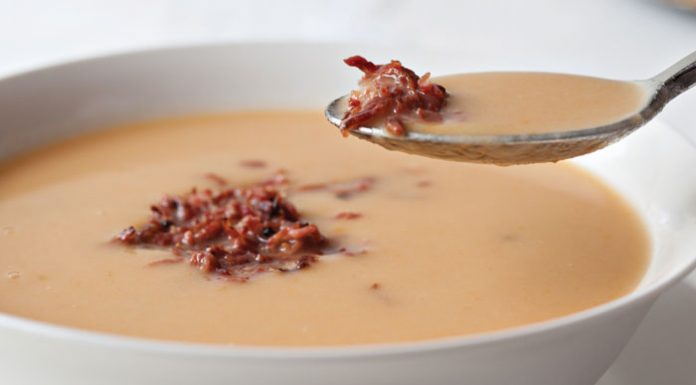This is my first visit to the Jersey City home of Moshe Duvid Ferencz, whose wife was gunned down in cold blood while tending his store only because she was Jewish. There is an unmistakable atmosphere of a palpable void in the house. As hard as Moshe Duvid tries not to express his grief, his bottomless sadness and sheer vulnerability are tangible. The crushing silence coming from the bedroom in which his three young children are sleeping soundly can break one’s heart. Moshe Duvid promised them at their mother’s levayah that from then on he would double as both their father and mother, and he is clearly fulfilling his promise. But children undoubtedly prefer two parents to one doing double duty, longing for the hand that caressed them from the moment they came into this world.
I meet Moshe Duvid in the second-floor apartment that he is renting in his racially mixed neighborhood two days after the unveiling of his wife’s matzeivah. Pointing to the computer that is sitting on his dining room table, he shows me the nusach of the matzeivah he helped compose. The few short lines speak volumes about his loss. Where there was once a life-long partner and parent, there is now a stone. He insisted that we postpone our meeting until 10:00 p.m., because most of the evening he’s busy tending to his children and putting them to bed. Having taken the wrong exit after crossing the Holland Tunnel, I am running a few minutes late.
The Children
“People have offered to take my kids for a night here and there,” he shares with me after saying hello, “but I don’t want to split them up. I stay home every night because I know that that’s when they need me the most. Maybe in a few months I’ll be able to let them go sometimes, but right now I feel that it’s very important for them to be in their own beds.
“I’ve never observed anyone else in this situation,” he continues, “but I’ve heard that people can become so heartbroken that they don’t know what to do with themselves, and their kids suffer as a result. So it’s an extra chesed that I am able to do it. From the moment it happened I was with my son, after which they escorted us to the new beis midrash. I knew that the news was about to be broken, and throughout that time I wasn’t lost. And I don’t feel lost today.”
I ask Moshe Duvid how his children are coping.
“Another chesed is that my children don’t have the added trauma of the actual shootings or seeing the guns. It’s not about the way their mother lost her life,” he tells me softly. “I’ve heard from other families that their children are having terrible nightmares, but, baruch Hashem, my children have been spared that. Just to illustrate the ripple effect of what happened, this past Sukkos we were singing in the sukkah and a few non-Jews walked by and made fun of the way we were singing. They didn’t do anything except make loud comments. A couple of weeks ago, several months after this happened, one of the therapists in my daughter’s school told me that she’d called my daughter out of class to verify a story. It seems that one of her classmates had told the therapist that a non-Jew had barged into our sukkah with a gun. My daughter assured her that there weren’t any guns involved. The point is that my daughter’s friends were clearly imagining this because of the way my wife was murdered. My children’s trauma isn’t that she was shot, it’s that their mother is gone,” he tells me, swallowing hard.
“I’ve been told,” he continues, “that others in my situation might hold onto their wives’ clothing and belongings, but I say that I don’t need them. She isn’t coming back—that is, until Moshiach comes. My youngest daughter kept asking me when Mommy was coming back, and my older daughter explained to her that we’re only going to see her when Moshiach comes. So now she keeps saying that she’s waiting for Moshiach. I explained to my children that Moshiach is almost here and we’re in ikvesa di’meshicha, the last days before Moshiach, and achakeh lo b’chol yom sheyavo. But it’s not as if I’m only saying it to give them chizzuk; that’s how I feel.”
“Would you say that your kids are strong?”





















